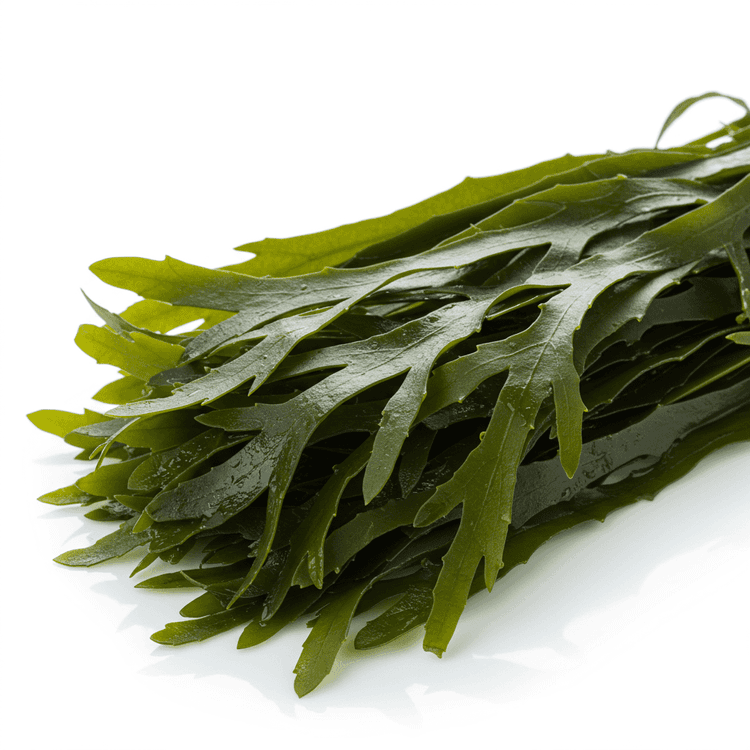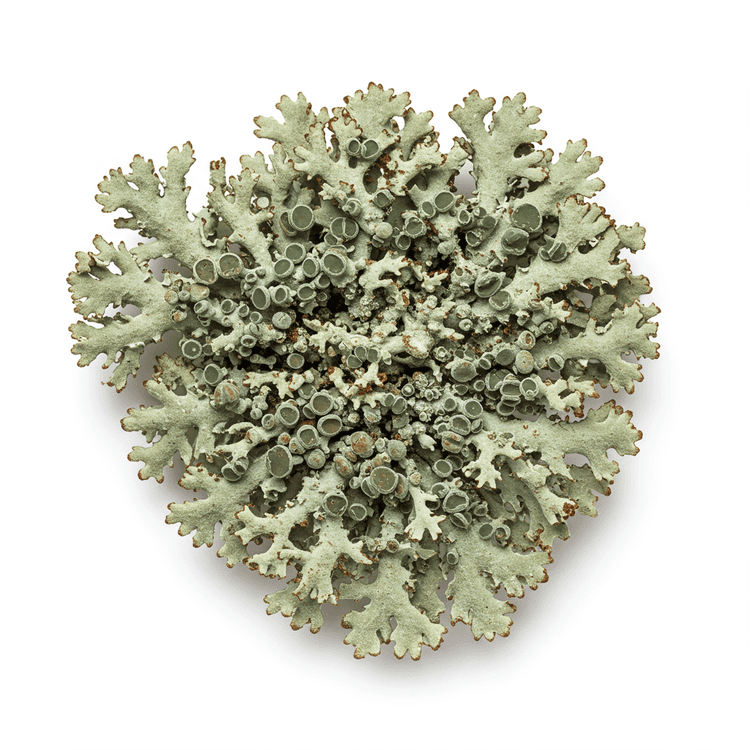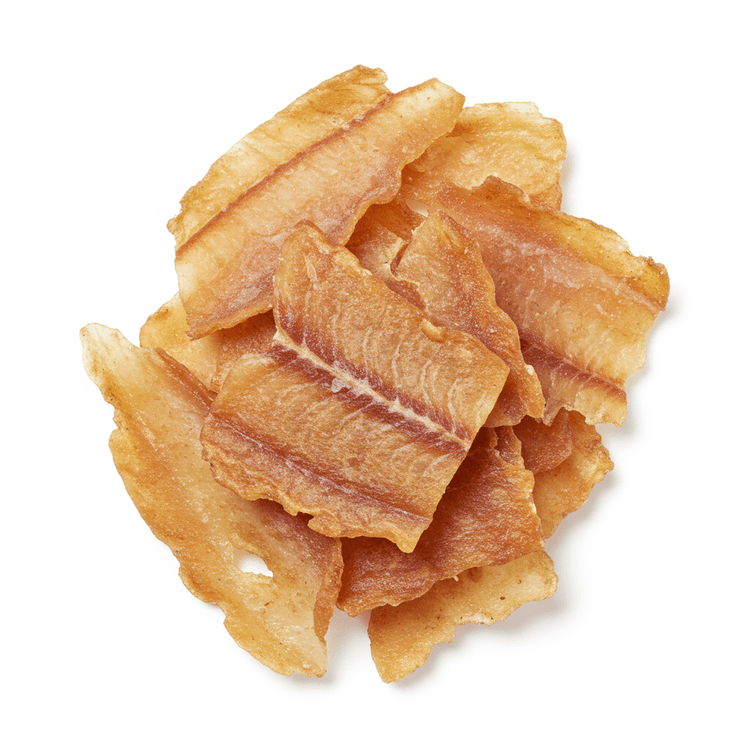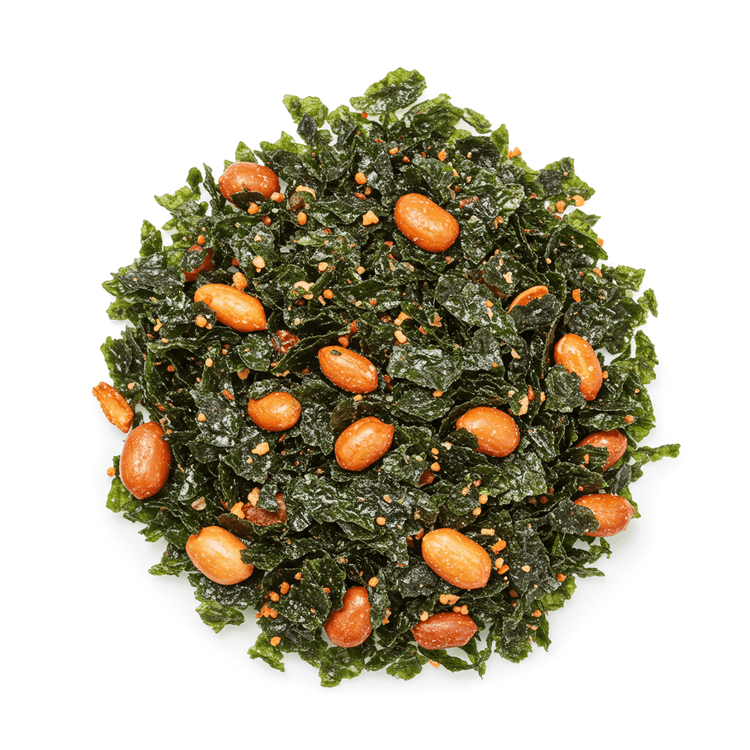
Seaweed
Seaweed, a versatile marine algae, offers a unique umami flavor and a slightly salty taste of the ocean. Its texture ranges from crisp and delicate when dried, to slightly chewy and succulent when fresh. Seaweed's appearance varies widely depending on the species, exhibiting colors from vibrant green and deep red to dark brown and even black. Rich in vitamins, minerals, and antioxidants, seaweed is increasingly popular as a nutritious and flavorful ingredient in diverse cuisines. Discover delicious seaweed recipes and learn about the health benefits of incorporating this ocean vegetable into your diet.
Common Uses
- Making sushi rolls and wraps: Nori seaweed sheets are commonly used to wrap sushi rice and fillings, providing a distinctive flavor and structural integrity.- Adding flavor to soups and broths: Dried kelp or kombu is often simmered in broths to impart a savory umami taste and enhance the depth of flavor.- Creating crispy seaweed snacks: Seaweed sheets can be baked or fried to create light and crispy snacks, often seasoned with salt, sesame oil, or other spices.- Thickening sauces and stews: Agar-agar, a seaweed extract, is used as a vegetarian thickening agent in sauces, stews, and desserts.- Enhancing salads: Wakame seaweed can be added to salads for a briny flavor and a slightly chewy texture, offering a nutritional boost and unique taste.- Preparing seaweed salads: Various types of seaweed, such as hijiki or sea lettuce, are rehydrated and dressed with vinegar, sesame oil, and other seasonings to create refreshing and flavorful salads.
Nutrition (per serving)
Nutrition (per serving)
Calories
45.0kcal (2.25%)
Protein
5.0g (10%)
Carbs
9.7g (3.53%)
Sugars
0.0g
Healthy Fat
0.7g
Unhealthy Fat
0.1g
% Daily Value based on a 2000 calorie diet
Nutrition (per serving)
Calories
45.0kcal (2.25%)
Protein
5.0g (10%)
Carbs
9.7g (3.53%)
Sugars
0.0g
Healthy Fat
0.7g
Unhealthy Fat
0.1g
% Daily Value based on a 2000 calorie diet
Health Benefits
- Excellent source of iodine, vital for thyroid function and metabolism.
- Rich in vitamins and minerals like vitamin K, iron, and calcium, supporting bone health and blood production.
- High in antioxidants, which help protect the body against cell damage from free radicals.
- Good source of fiber, promoting digestive health and regularity.
- May help lower cholesterol levels, contributing to heart health.
- Contains compounds that may have anti-inflammatory properties.
Substitutes
Chefadora AI is here.
Experience smarter, stress-free cooking.
Storage Tips
Dried seaweed should be stored in an airtight container in a cool, dark, and dry place, away from direct sunlight and moisture. This will help maintain its crispness and flavor. Avoid storing near strong odors, as seaweed can absorb them. Properly stored dried seaweed can last for several months to a year. Fresh seaweed should be refrigerated and used within a few days. Make sure to keep it slightly damp to prevent it from drying out.
Marnirni-apinthi Building, Lot Fourteen,
North Terrace, Adelaide, South Australia, 5000
Australia





